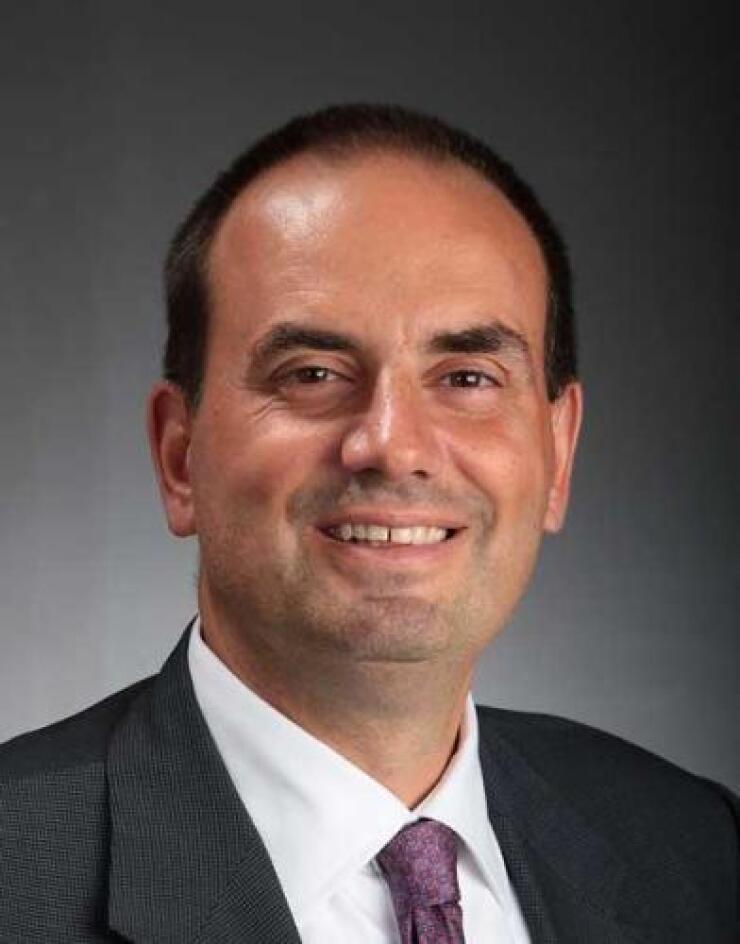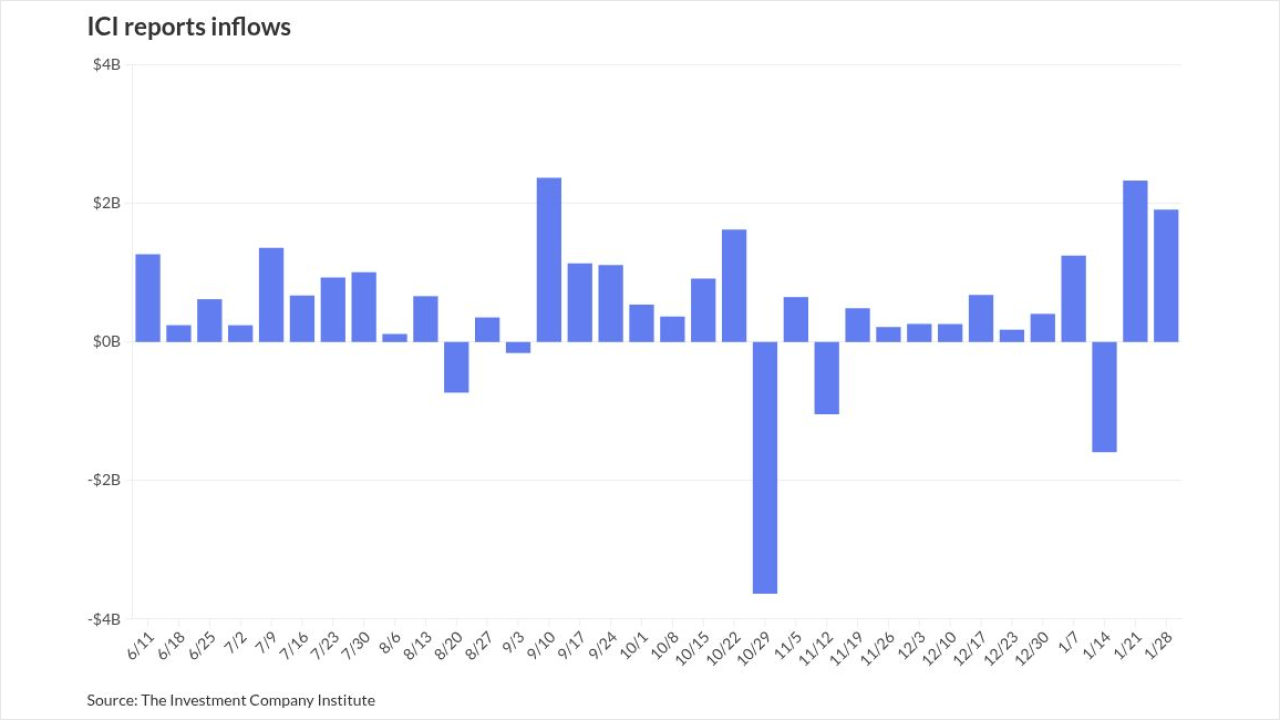Municipal bond issuers in the Midwest sold $83.58 billion of debt in 2020, a 15.8% increase as borrowers streamed into the market with refunding paper.
Refunding volume swelled by 53% to $32.1 billion, according to Refinitiv data, marking a second year of steep growth as rates hovered around and hit new lows. That offset a 2.2% dip in new money issuance.
“We had explosive growth in the Midwest but it’s not because of a sudden interest in capital projects and infrastructure,” said Richard Ciccarone, president of Merritt Research Services. "It was a pretty paltry year for infrastructure and that was in part due to borrowers feeling under pressure by the COVID-19 pandemic and wanting to preserve balances and whatever powder they had in their treasury."

The Midwest volume surge “has everything to do with low interest rates and refunding through taxable financings,” Ciccarone said.
Taxable borrowing rose by 67% to $22.19 billion compared to a more modest 6.5% hike in tax-exempts to $60.45 billion.
The use of taxable structures stood out in the absence of the ability to advance refund debt with tax-exempts, and market conditions supercharged the numbers. Nationally, corporate borrowing spiked 223% to $40 billion fueling beliefs that a trend is at hand.
While refunding levels will fluctuate with interest rates and arbitrage issues as well as the potential return of tax-exempt advance refundings under a new Congress and administration, taxable muni paper may now be imprinted on the municipal market as a new fixed-income asset class.
“It’s a pivotal, break-out year,” Ciccarone said of taxable buyers. “They’ve now developed an appetite for the adjusted risk and security in general and established so their presence.”
Corporate crossover buyers have grown more comfortable with municipal credits and are attracted by the yields relative to investment grade corporate bonds and their interest has broadened to cover both safe and risker sectors. With several years of rapid growth, buy side indexes with taxable muni bonds are now established.
For issuers, the ability to tap into a broader market of buyers on an ongoing basis is good news for new money and refundings alike as it adds to demand and will help keep borrowing costs down, which will be more notable if rates continue to rise this year, Ciccarone said.

Issuers in Illinois, Michigan, Ohio pushed each state above $10 billion overall with Wisconsin close at $9.12 billion. Ten of the 11 Midwestern states – Illinois, Iowa, Michigan, Minnesota, Missouri, Nebraska, North Dakota, Ohio, South Dakota, and Wisconsin all landed in positive territory with only Indiana borrowers recording a drop.
A look ahead at 2021 at Midwest borrowing prospects is clouded with the Biden Administration and a Democratic-controlled congress. New federal relief that could bolster the coffers of local and state governments, healthcare and education providers won House approval along party lines Friday. That could allow some governments to ease the purse strings on capital as could a national infrastructure program.
The region’s most notable deal by size came in late February before the pandemic storm hit with full force. The long-planned Buckeye Tobacco Settlement Financing Authority issue for $5.4 billion bumped a portion of the bonds back into investment-grade territory and eliminated default risk.
The
Chicago sold
In September, Chicago sold $1.2 billion of tax-exempt and taxable new money and refunding for O’Hare International Airport with Jefferies and Loop Capital Markets in the lead slots. Along with federal relief, the deal’s structure provided a cushion for the airport's efforts to weather the pandemic blow to air travel at least through 2021, taking $257 million of
The Buckeye tobacco deal made it the largest issuer in the region, followed by the Wisconsin state government, which Refinitiv credited with 10 issues totaling $2.3 billion.
“Issuance by the state of Wisconsin in 2020 reflected typical new money needs along with refunding transactions that were the result of the continued low interest environment that has been great for all public issuers,” said state Capital Finance Director David Erdman. The state used forward delivery structures and taxable bonds to take advantage of rates.

The 2020 numbers also reflect a $623 million appropriation bond transaction that resulted “not only in debt service savings, but also eliminated risk exposures the state had related to Libor-based variable rate obligations and swap agreements,” Erdman said. The state has kicked off 2021 with a busy calendar in a series of new money and refunding transactions under its GO and revenue credits.
The Illinois Finance Authority, the state’s largest conduit, placed third among the region's issuers with $2.1 billion of issuance on behalf of 13 borrowers that favored refundings over new money.
Borrowers moved “quickly to capture low rates to refinance existing debt despite the additional duties, burdens and challenges posed by COVID-19,” said IFA Executive Director Christopher Meister. “Notwithstanding the low-rate environment, conduit borrowers across sectors generally demonstrated caution with respect to new money projects as borrowers prioritized their responses to COVID-19.”
Looking ahead, new money conduit borrowing generally follows the health and direction of the economy, Meister said.
“If there is a swift improvement across economic sectors, we hope to see an increased number of borrowers as well as diverse and larger new money conduit bond issues," he said.
Illinois placed number five among Midwest borrowers, credited with five deals for $1.6 billion, but would have placed much higher in the ranking if its borrowing through the Federal Reserve’s Municipal Liquidity Program was counted in the Refinitiv tally.
Illinois, the only state and one of two issuers to tap the program before its Dec. 31 expiration, borrowed $1.2 billion of one-year notes in May and $2 billion of three-year bonds late in the year. Illinois plans a new money deal in the spring and will sell $2.9 billion of new money for capital through fiscal 2022 which begins July 1 and an additional $2.56 in fiscal 2023.
Citi took the top spot among senior managers, credited with 46 deals valued at $7.1 billion followed by JPMorgan and Stifel.
PFM Financial Advisors led advisory rankings, credited with 321 deals valued at $17.6 billion followed by Baker Tilly Municipal Advisors and Acacia Financial Group Inc.
Squire Patton Boggs LLP led among bond counsel followed by Chapman and Cutler LLP and Kutak Rock LLP.





